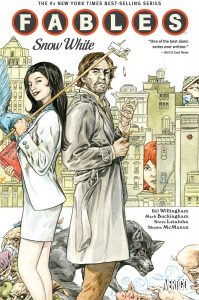 It’s funny, when you think about it a bit. Snow White has been a main character (arguably the main character; definitely top five all along) in the Fables series for the eleven years of its run that I have reviewed, and yet this is the first time Willingham has named a book after her. It was enough to make me wonder if he was running out of ideas, and… whether that’s a fair assessment or not, I am nearing the end of the series and its associated spinoffs both, brief research tells me.[1]
It’s funny, when you think about it a bit. Snow White has been a main character (arguably the main character; definitely top five all along) in the Fables series for the eleven years of its run that I have reviewed, and yet this is the first time Willingham has named a book after her. It was enough to make me wonder if he was running out of ideas, and… whether that’s a fair assessment or not, I am nearing the end of the series and its associated spinoffs both, brief research tells me.[1]
Anyway, the first bit of the book wraps up the stories of Bufkin and his barleycorn girlfriend Lily (from the Castle Dark arc), and the battle to free of Oz from one of the Emperor’s regional governors. It was… fine? Towards the end, I liked it quite a bit, but I definitely think it would have fit better at the end of a previous arc instead of the beginning of this one.[2]
Later, the story of a bro who shows up claiming to be Snow’s first common law husband, before even Prince Charming, which… my knowledge of the story of Snow White doesn’t precisely fit with her ever having met a man prior to the dwarves, much less pledged to marry one. Which makes the whole rest of what happened feel like this was an excuse to move some pieces around the board in very specific ways.
Don’t get me wrong, the sequence of events told a good story, and I still want to know what happens next, even as I’m left with difficulties envisioning that there has been much of anything left to happen next for quite some time. But the precipitating event here, I just can’t buy it, so everything else is at least slightly tainted.
Oh, well.
[1] I wouldn’t have opted to, but I also don’t own all of them, so I’d need to know what to buy regardless.
[2] Unrelated brief (semi-accidental) research here tells me most of these were at the ends of prior comics, but only collected together in graphic novel format here, all together. Which explains why they felt as odd as they did. I stick by my “end of a book instead of beginning of a book” assessment.
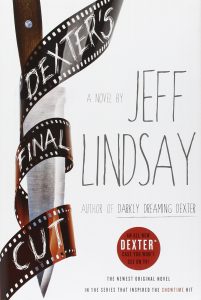
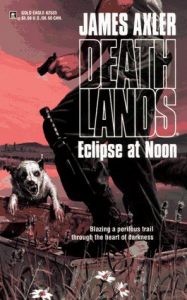 A thing you would have no real reason to remember:
A thing you would have no real reason to remember: 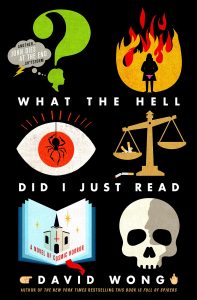 To my surprise, a third
To my surprise, a third 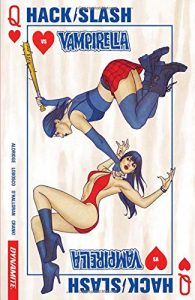 I know very little about Vampirella as a character, save that she exists and dresses… provocatively, let’s say. However, I know a great deal about Cassandra Hack, so I am qualified to speak on two thirds of the factors that went into this book.
I know very little about Vampirella as a character, save that she exists and dresses… provocatively, let’s say. However, I know a great deal about Cassandra Hack, so I am qualified to speak on two thirds of the factors that went into this book.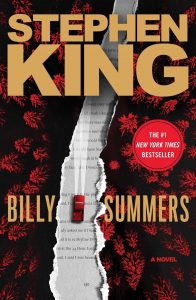 It really should not take me four months to read a book, too-busy job and toddler-rearing or not. And I mean, don’t mistake me, I read really a lot of comics in this period as well, but… something isn’t right, and I need to address it[1]. All that said, despite a four month duration, I was pretty happy with
It really should not take me four months to read a book, too-busy job and toddler-rearing or not. And I mean, don’t mistake me, I read really a lot of comics in this period as well, but… something isn’t right, and I need to address it[1]. All that said, despite a four month duration, I was pretty happy with 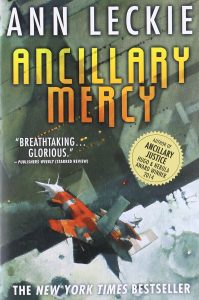 I finished Anne Leckie’s Ancillary trilogy yesterday, and it comes with a realization that I had completely failed to anticipate what the story was actually about.
I finished Anne Leckie’s Ancillary trilogy yesterday, and it comes with a realization that I had completely failed to anticipate what the story was actually about.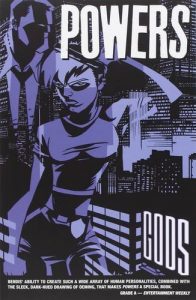 This is the last book in the Powers series!
This is the last book in the Powers series!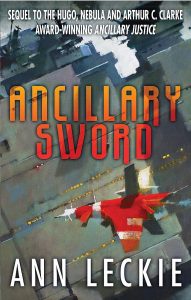 Look at me, cleaning up my partially-read series backlog. Woo! But also, it’s nice in this case because I still remembered at least a little bit of
Look at me, cleaning up my partially-read series backlog. Woo! But also, it’s nice in this case because I still remembered at least a little bit of 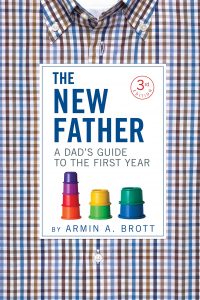 I cannot decide whether it’s weirder to be reading non-fiction, or to be reading a book gradually over the course of a year. Both are pretty weird! Like, maybe histories would be less weird? History is just non-fiction with a plot and a throughline. Although I guess a book about what to expect over the course of a year of childhood growth is almost that too? But histories have characters, which this does not, super-disgusting anecdotes about mistaken pumpkin puree notwithstanding.
I cannot decide whether it’s weirder to be reading non-fiction, or to be reading a book gradually over the course of a year. Both are pretty weird! Like, maybe histories would be less weird? History is just non-fiction with a plot and a throughline. Although I guess a book about what to expect over the course of a year of childhood growth is almost that too? But histories have characters, which this does not, super-disgusting anecdotes about mistaken pumpkin puree notwithstanding.